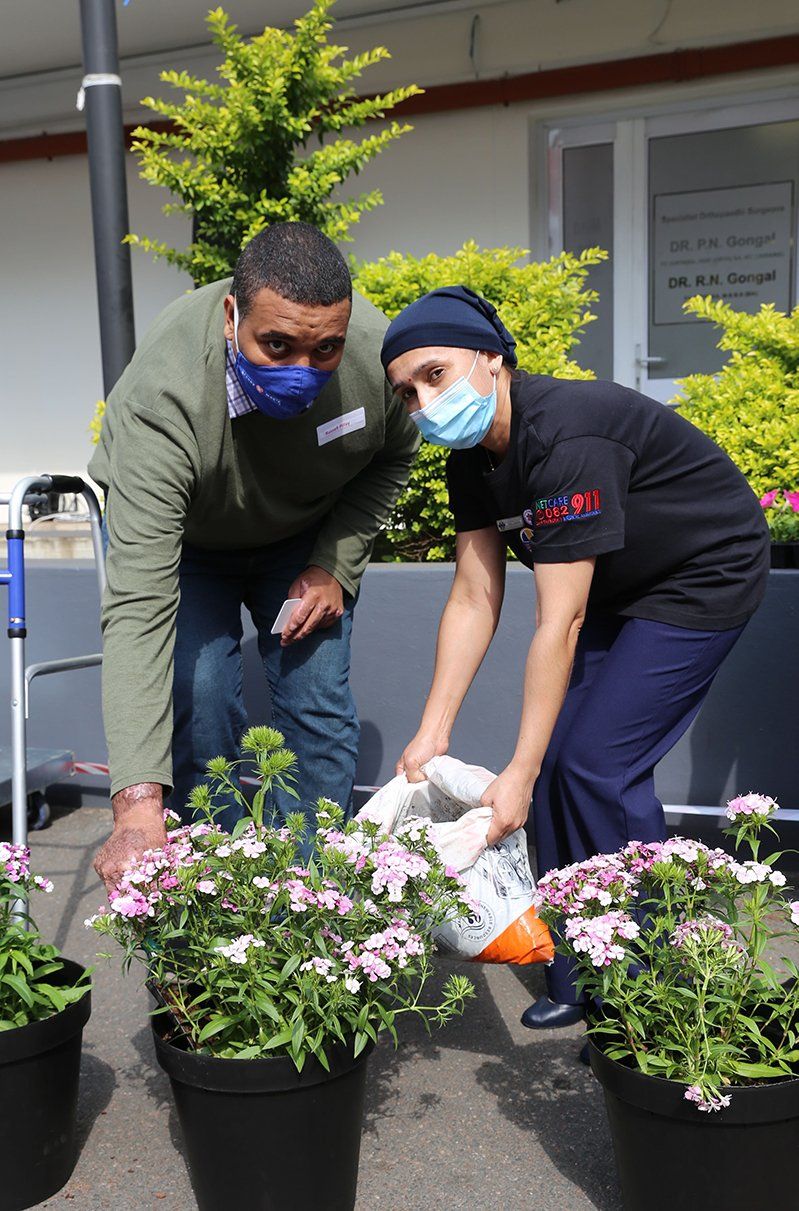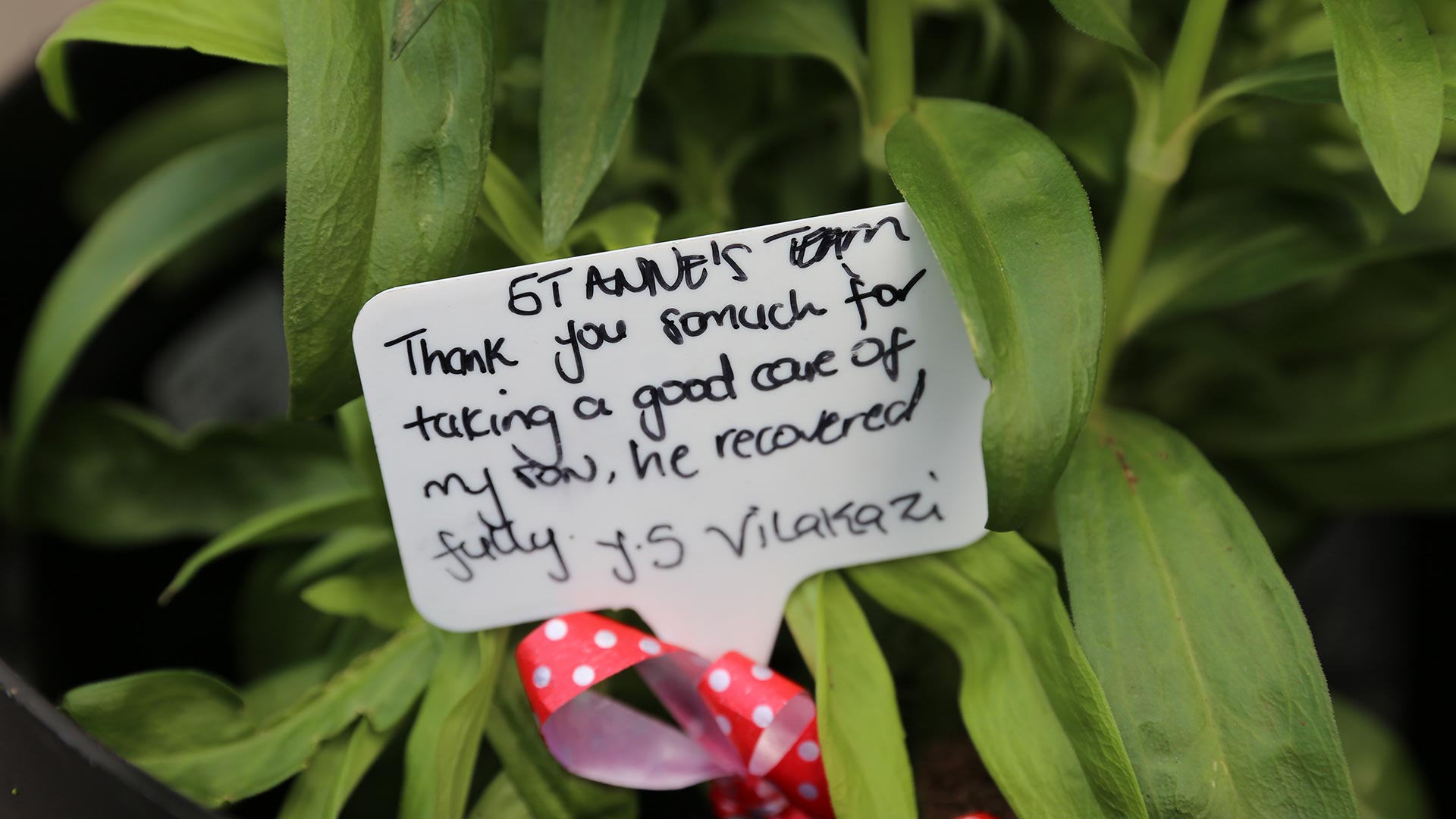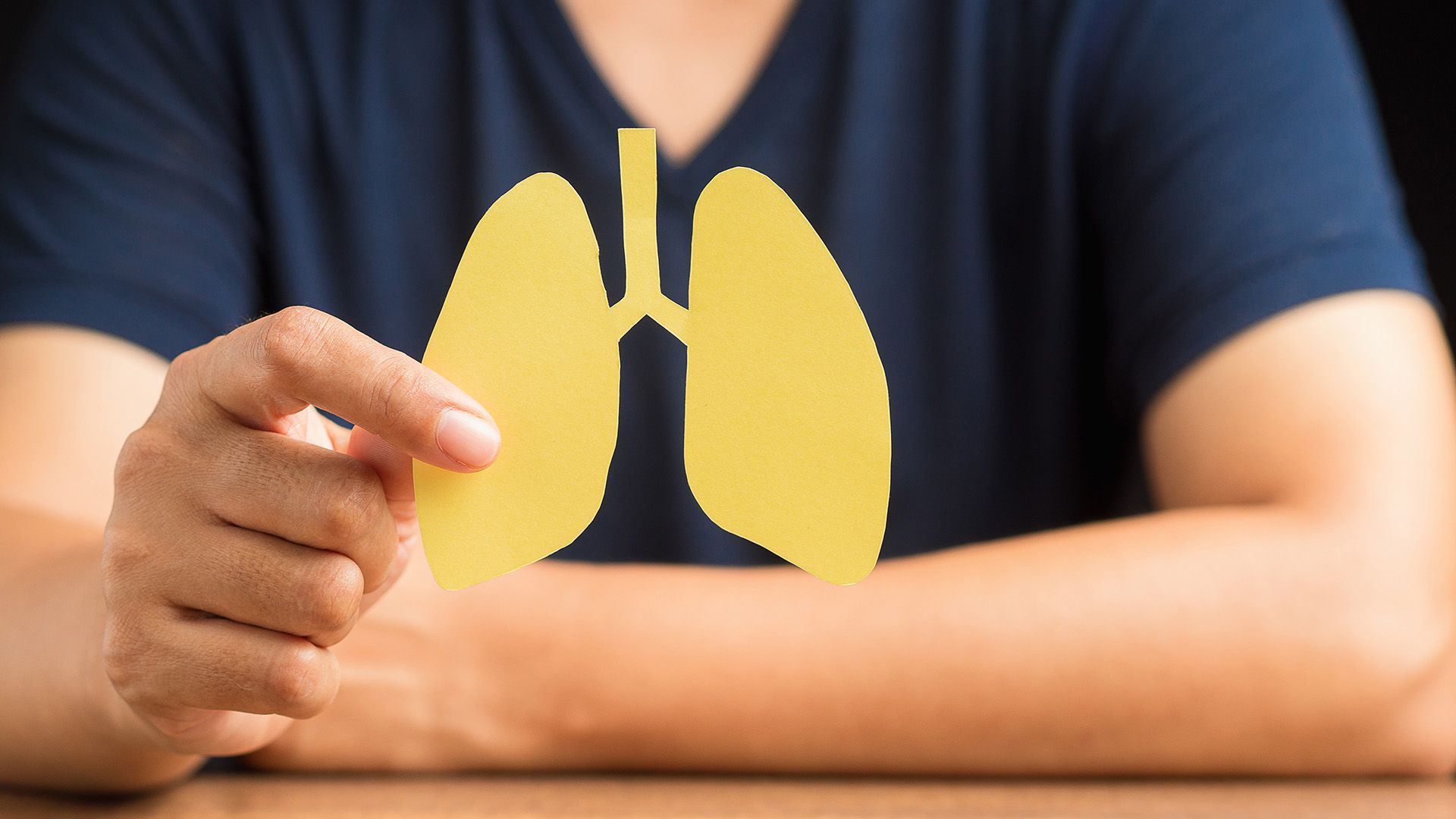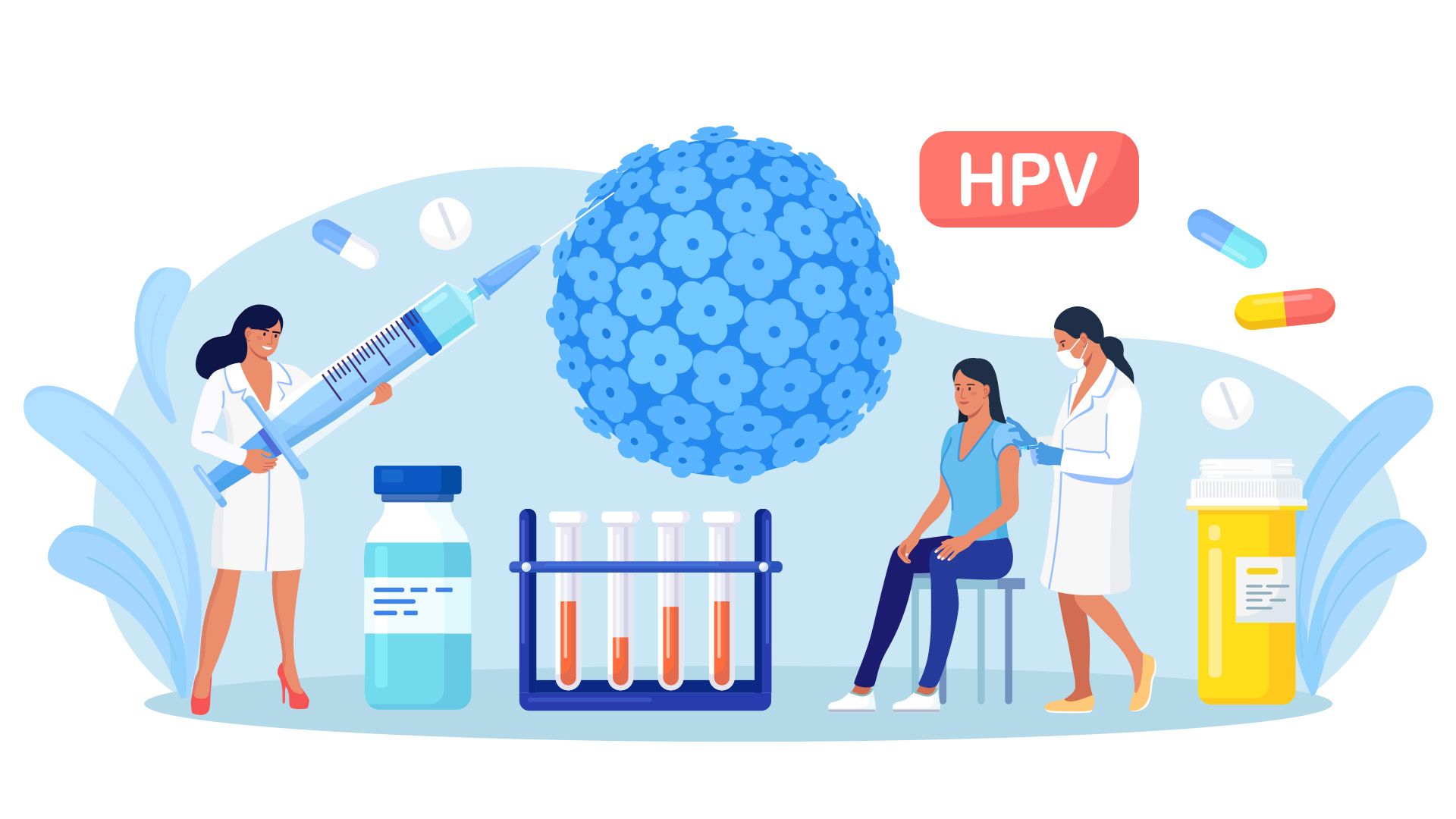PMB hospital function celebrates life and recovery of trauma survivors
October 20, 2020
Netcare St Anne’s Hospital level 1 trauma accreditation saves lives
Celebrating not just its 30th anniversary this year but also the first birthday of the hospital’s accreditation as a Level 1 trauma centre by the Trauma Society of South Africa
(TSSA), Netcare St Anne’s Hospital
in Pietermaritzburg hosted a special trauma survivors’ function to celebrate life and recovery yesterday.
In congratulating the staff of the hospital and the 24-hour Level 1 trauma centre, Craig Murphy, regional director of Netcare’s coastal region, noted that Netcare St Anne’s Hospital was the first hospital in KwaZulu-Natal to achieve this highest level of accreditation for trauma care in South Africa, in September last year.
In congratulating the staff of the hospital and the 24-hour Level 1 trauma centre, Craig Murphy, regional director of Netcare’s coastal region, noted that Netcare St Anne’s Hospital was the first hospital in KwaZulu-Natal to achieve this highest level of accreditation for trauma care in South Africa, in September last year.
“The accreditation and the wider TSSA system have already proved their value, strengthening emergency medical care services in the greater KwaZulu-Natal region while substantially improving patient outcomes and saving many lives. It is therefore most appropriate that this birthday function, hosted in honour of our trauma survivors, is held in celebration of life,” added Murphy.
A number of trauma survivors who were treated at the facility and other dignitaries from Netcare and the TSSA attended the trauma survivors’ function, which included a symbolic tree planting ceremony, and was hosted to celebrate World Trauma Day on 17 October. Some of the survivors also related the experiences of their traumatic injuries and the lifesaving treatment they received at Netcare St Anne’s Hospital.
One patient who is deeply touched by his experience at Netcare St Anne’s hospital is Gregory Brooks, the headmaster of the Drakensberg Boys’ Choir. On the night of 10 December, he had the misfortune of being attacked by four armed intruders at his home in the Champagne Valley area of the Drakensberg. The men stabbed Mr Brooks and kicked him in the ribs.
“I was rushed to Netcare St Anne’s Hospital, where I was under the care of trauma surgeon, Dr John Bruce. I was admitted to the hospital in a dire state. Nevertheless, Dr Bruce and his team were able to stabilise me and certainly saved my life. I am eternally grateful to them all for the trauma care that I received at the facility, which was world class,” related Mr Brooks of his experience.
According to Murphy, when Netcare St Anne’s Hospital, which first opened its doors in 1990, was accredited as a Level 1 trauma centre, the number of patients who were brought to the hospital for life-saving care by emergency medical practitioners and Netcare 911 helicopter emergency services (HEMS), quickly increased by some 300%. He believes that this demonstrated the great need that the TSSA trauma system was meeting.
Murphy said that the success of the trauma centre is in large part due to the practice of trauma surgeons comprising Professor Damian Clarke, academic head of the trauma system in the region; Dr Vassil Manchev; Dr John Bruce; and Dr Ian Donkin, as well as the excellent support provided by the Netcare national trauma team under Mande Toubkin, Netcare’s general manager: emergency, trauma, transplant and CSI.
“The considerable efforts of the Netcare KwaZulu-Natal trauma programme manager, Mariesa Human, the emergency department manager Farzana Pillay, and the highly skilled staff and modern technologies available at the facility have been integral in making the accreditation and system a success,” he added.
Toubkin said that the award of TSSA Level 1 accreditation to Netcare St Anne’s Hospital last September meant that the facility joined just a few others as the country’s top TSSA-ranked private trauma facilities. These are the renowned Netcare Milpark and Netcare Union hospitals, situated in Johannesburg and Alberton respectively.
“The TSSA accreditation requirements are stringent, and the hospital’s achievement of Level 1 accreditation was an outstanding accomplishment and an important development for trauma medicine within KwaZulu-Natal,” notes Toubkin.
She explains that the TSSA Level 1 accreditation requirements include the ability to provide round-the-clock multi-disciplinary care to even the most compromised trauma patients. In addition, the trauma facility should also be able to accept patients both via helicopter or road ambulance.
“Essentially, the Level 1 accreditation is an indication of the application of best practice and having the required skills and equipment in place to treat all levels of trauma, including life-threatening Priority One patients with complex and/or multiple injuries.
“It has been shown internationally that taking severely injured patients to an appropriately accredited trauma centre in the shortest possible time improves medical outcomes. Netcare’s Medibank statistics, and now the experience of the Netcare St Anne’s Hospital, bear this out, showing that the trauma system implemented in both the private and public sectors by the TSSA nationally works to reduce mortality and improve survival rates in patients seen in these centres.”
Louis Joubert, general manager of Netcare St Anne’s Hospital concluded proceedings by saying: “On the occasion of this tremendously moving celebration, I wish to take the opportunity to thank the people of Pietermaritzburg and the KwaZulu-Natal Midlands for the trust they have placed in the hospital and its staff through the years and for their ongoing support. This has allowed us to expand our services, such as our trauma facility, and become a well-known healthcare facility within the city.”















